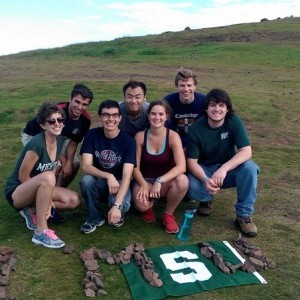
What faculty, students and friends of the Department of History know is that our majors learn to think broadly, and they develop skills in critical analysis, research, and oral, written and digital communication. They grow as informed citizens. And they find the joy of making new discoveries and conquering great challenges. Knowledge and experience gained in History coursework enables our majors to excel in a wide variety of fields, such as education, law, government, international development, business, journalism, medicine, social work and much more.
In a recent survey, which was carried out by MSU alumnus John Miller, 85% of our undergraduate alumni answered yes to the question, “Did history as a major give you broad skills and ways of thinking that have been important for your career(s)?” Some elaborated on this:
- “My background in the history allows me to approach the practice of medicine with a much richer perspective, fostering deeper relationships with my patients.”
- “Through the history department at MSU, I was able to explore complex issues and all of their intricacies unlike I had ever been able to before. With discussion-based classes, passionate professors, and a great diversity of subject matter, I was continuously challenged to look deeper into the past and apply what I was learning to the present.”
- “I loved the study of History (still do) but did not understand what kind of non-teaching career opportunities I could expect. I realized I could use it in business after I joined Ford.”
- History “provides a broad, well-rounded education that helps the students respond to changes as they occur. In this day and age, I am not sure that any narrowly-focused education will survive the next technical or sociological earthquake.”
- “I thought history was trite and pointless when I was in high school. I stepped into [a History class at MSU] and it completely changed my mind. It showed me that history is living and breathing – history is about people, and everyday people at that. [My classes] also showed me that history is about always looking at the world through a critical lens. [The major] turned my high school education upside down, and I have never been the same, in the best way possible.”
History majors elsewhere tell a similar story about what they took from their programs, as one can see from research being conducted by the American Historical Association, and in essays, editorials, lists, and a variety of studies. Business executives value the major as do CEOs in the tech industry. A recent editorial by a STEM faculty member stressed that even for those interested in chemistry, biology, and physics, the ability to draw from other disciplines produces better, more well rounded scientists. And a recent look at history majors nationwide shows that they earn higher median salaries than graduates all other humanities disciplines and earn at least the same as those who majored in education, international relations, and communications. Many history majors were in corporate or management positions, which is something our own survey of majors showed.
You only once live your undergraduate days. Why not pursue your passion? Make history! And do so with an eye toward the future. Become a major.
For more information on careers for History majors, see the following sites:
US News – What Can You Do With a History Degree?
Prospects – What can I do with my degree?
Historians – What can you do with that history degree?
Historians – History is not a useless major; fighting myths with data.